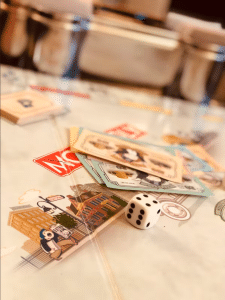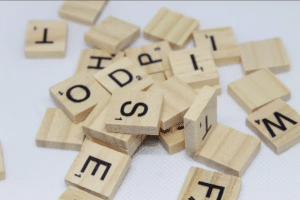Uncategorized
Dispelling Common Gaming Myths
Gaming is one of the most popular pastimes in the world, with people of all ages enjoying this form of entertainment in some capacity. From board games – some of which are centuries old – to video games, there is something for everyone. As with anything extremely popular, many of the world’s oldest and most famous games are surrounded by a number of myths that many fans take as facts. Nowadays, we can use Google to verify whether these myths are true or not but, as many of them were created centuries ago, the rules and culture behind these games are generally explained through word-of-mouth, with very few people feeling the need to check the internet for clarification. This has led to some common misconceptions that affect how we play some of our favourite games. Read on for some examples.
Monte Carlo Fallacy
The Monte Carlo fallacy is a widely believed concept that has affected gamers for centuries. It is the belief that the more you lose, the closer you get to winning next time. For example, someone who is trying to guess heads or tails in a coin toss then believes that after the coin lands on heads three times in a row, it is more likely to land on tails on the fourth toss. This is, of course, incorrect, as the chances of each coin toss are 50/50 no matter the previous result. Also known as gambler’s fallacy, the name “Monte Carlo fallacy” is derived from an early 20th century game of roulette at the Monte Carlo Casino, where the ball is said to have landed on black after 26 consecutive spins. Many players incorrectly bet against this outcome, convinced that, the more it occurred, the more likely a different outcome was the next time. This misconception is still common today, with video gamers, lottery players and Tinder users all believing in it.
Roulette and “lucky numbers”
Another commonly held gaming misconception is the idea of certain numbers being luckier and therefore more likely to come up in roulette. Of the many misconceptions about how the numbers work in this game, this is by far the most frequently cited. Perceived lucky numbers can vary depending on the individual player, with many choosing birthdays of loved ones and other significant dates. A lot of players also choose regional and cultural lucky numbers while avoiding those believed to be unlucky, like number 13 in Western society. Regardless of anyone’s reasons for favouring certain numbers, the fact remains that the chance of each number winning on an American roulette wheel will always be 37-1, (36-1 on a European wheel).
Monopoly Free Parking
Monopoly is one of the world’s most popular board games, with over 300 versions incorporating various locations, themes and formats. The earliest version of the game was created in the 1930s by American writer Lizzie Magie, who hoped to teach the negative effect that monopolisation can create in societies. The board for the game’s most popular version features a space called “Free Parking”, which players have mistakenly believed makes the player landing on it eligible for a reward, although the rules hadn’t stated this. The origins of this misconception are unknown, but it has been around for decades, passed down through generations of players. This and other “house rules” for the game have been added as optional rules in newer editions, making them possibly the first incorrect gaming myths to be willed into existence.
Scrabble and Foreign Words
Another classic board game in which made-up rules have become widely accepted is the word game Scrabble. While there is a lot more strategy and intelligence required in it than Monopoly, that hasn’t stopped players from adopting their own rules. One of the common misconceptions surrounding this game is that foreign words are not allowed. However, the official rules state that any word “labelled as part of speech” in the language the game is being played in is permitted, meaning any word in the dictionary is valid. As the English language is made up of different languages like Latin, French and Greek, there are plenty of foreign words that can be legally played in Scrabble. For example, French words like “souvenir” or “silhouette”, which are now commonly used in English, are accepted in the game.


























